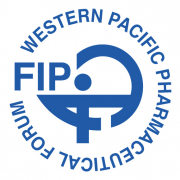DISPENSING MEDICATION: Let pharmacists do their jobs – See more at: http://www.mps.org.my/newsmaster.cfm?&menuid=36&action=news#sthash.wFrtIhTE.dpuf
2 Aug, 2014
reference:http://www.mps.org.my/newsmaster.cfm?&menuid=36&action=view&retrieveid=3924
I REFER to Datuk Dr Kuljit Singh’s letter “Consider higher costs and inconvenience” (NST, July 28). First, doctors are never formally trained or qualified in medicine dispensing. A doctor’s core qualification is in the diagnosis and treatment of diseases. Dr Kuljit stated rightly that doctors studied pharmacology as a subject but this is as different from pharmacy as an apple is from an orange.
Second, modern medicine and modern pharmacy have developed side by side in the past few centuries, resulting in doctors specialising in diagnosis and treatment of diseases while pharmacists specialise in the use of medications to treat and prevent diseases.
Pharmacists are the only health-care professionals who study the composition, formulation and profile of medicine in great detail to enable them to detect and prevent potential interactions among different drug molecules.
In brief, the training empowers pharmacists to dispense medicine professionally and avoid risks for patients.
Third, pharmacists are medication experts on the healthcare team, both in the public and private sectors.
Many studies, including some conducted in Malaysia, have reported a growing body of evidence showing that pharmacist involvement with patients does improve health, increase patient satisfaction and reduce healthcare costs. Pharmacists’ broad-based training teaches them cost-benefit analysis in medications.
Fourth, when doctors here were first permitted to dispense medicines some 50 years ago, grandmothers were helping to deliver babies at homes and self-taught grand-uncles were extracting teeth for a living.
Today, all these practices have qualified practitioners, except for medicine dispensing in the Malaysian private sector.
Why do Malaysians accept this double standard in private health-care when in the government sector, pharmacists carry out dispensing of doctors’ prescriptions?
The article, “Separation of roles by pharmacists and doctors”, as advocated by Associate Professor Dr Mohamed Azmi Ahmad Hassali (NST, July 11), should not be delayed.
The government has just allowed private non-specialist doctors to raise the maximum consultation fee from RM35 to RM125. This is a 257 per cent increase, after more than a decade. The maximum specialist consultation fee is also increased to RM180. Consumers will decide if these new fees are value for money.
Cost is not the only ruler to measure the quality of healthcare. High healthcare cost is not equivalent to superior treatment or best medicine.
Pharmacists are aware that many cardiovascular and metabolic drugs, with superior therapeutic outcome, are not commonly prescribed by private doctors. Giant pharmaceutical manufacturers are inducing doctors unethically, in many countries, to prescribe expensive medicines.
Why are we concerned about the practice of the private doctors and private pharmacists in this country? Money matters. The most rapid and uncontrolled increase in healthcare, including medications, is in the private sector.
Many foreign pharmaceutical firms as well as local ones are increasing prices of medicines almost at will.
There is no legislation to control prices of medicines here. Some private healthcare providers may overprescribe and overtreat either due to patients’ insistence or monetary consideration.
Few consumers know that there are more than 19,000 drugs, registered by the Malaysian Drug Control Authority, to treat diseases.
Most private clinics keep about only 100 registered drugs.
This means the choice of medication at clinics is restricted and, often, patients are not prescribed the best drug. So, while it is convenient to receive consultation and drug in one place, patients’ recovery may take longer or they may need to consult another doctor if there is no improvement.
Many community pharmacies are located near clinics in almost all states, except in rural districts in Sabah and Sarawak.
In our move to becoming a high- income nation, all pharmacists should not be left drying in the shops. The 6,000 private doctors should be gracious enough to return their borrowed role in dispensing and focus on becoming real clinicians.
Wong Sie Sing, president, Malaysian Community Pharmacy Guild
– See more at: http://www.mps.org.my/newsmaster.cfm?&menuid=36&action=view&retrieveid=3924#sthash.9PN6Thy4.dpuf
